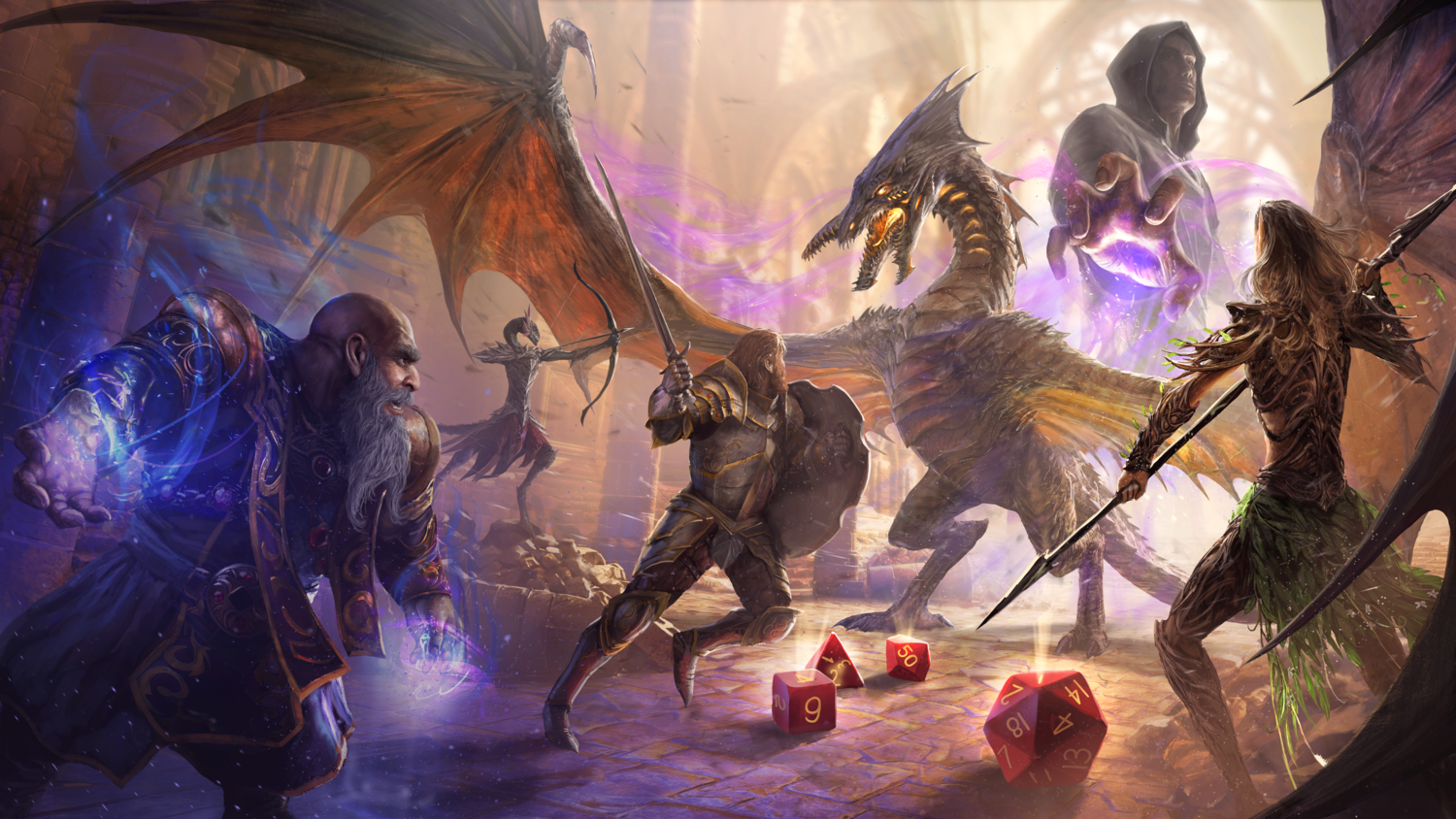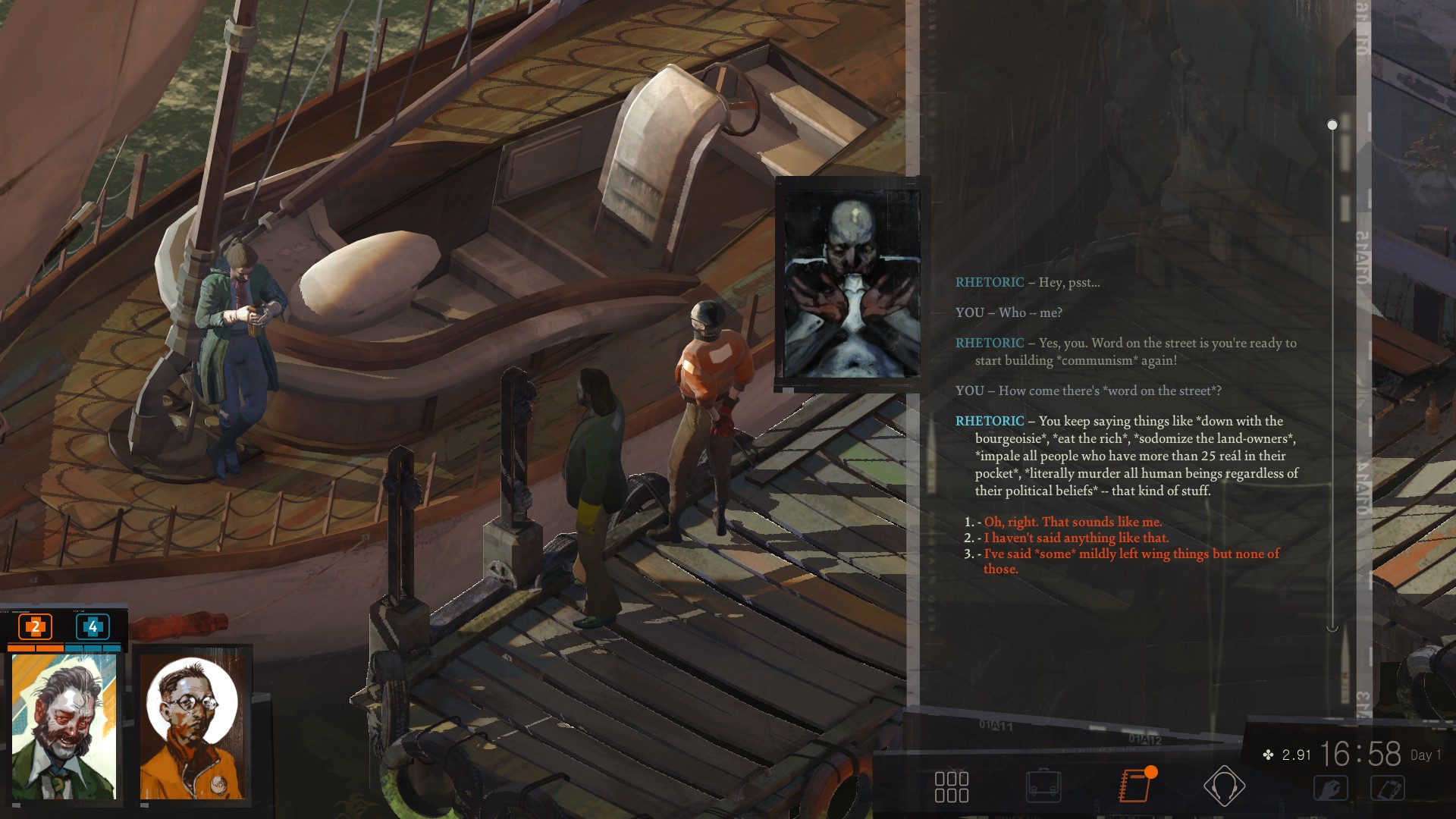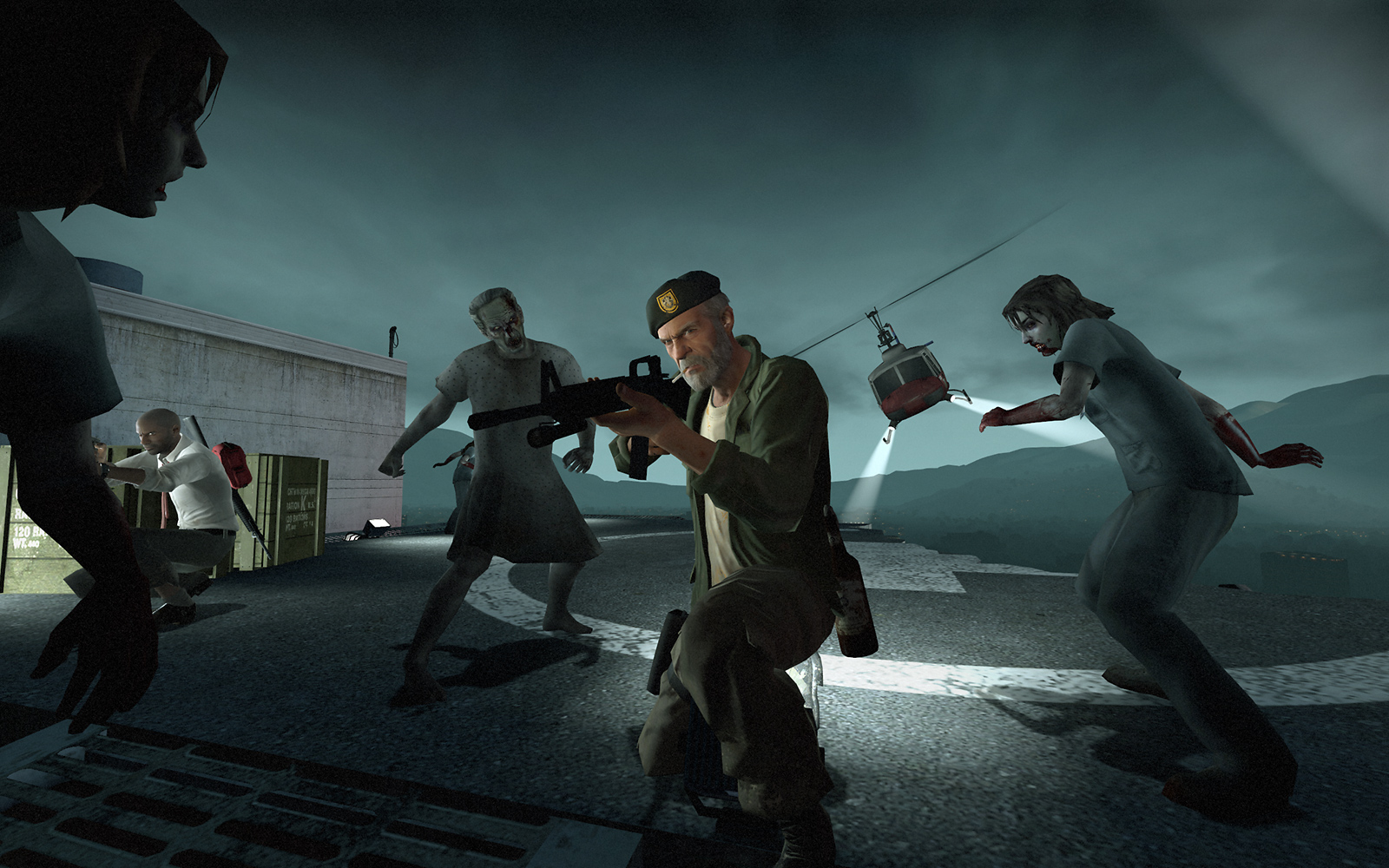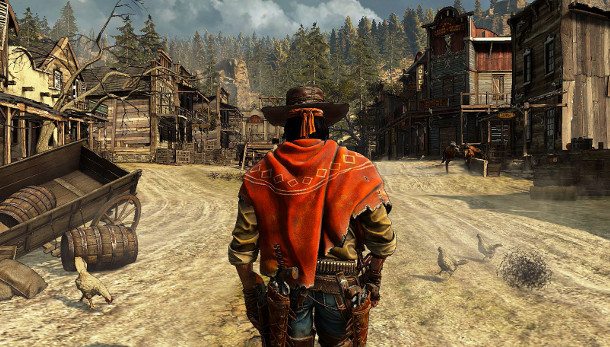Videogames need more Dungeon Masters, and not just in RPGs
They could learn a lot from tabletop gaming's narrative wizards.

Dungeon Masters are simultaneously my best friends and worst enemies. They are life-saving angels and untrustworthy tricksters; world-makers and world-breakers. Through their web of plots and NPCs they bind reality together and elevate the game-world beyond rules and lore. Without them, there are no tabletop RPGs. But while so much of what makes tabletop games great has been mimicked by videogames, the role of the DM has largely been left on the table.
There is, of course, a pretty obvious reason for this: games are driven by AI and scripts, keeping the story moving, making rolls, and ensuring everything adheres to the hardcoded rules. But these systems and bits of code keep us at arm's length. It's like having a DM that emails you notes but never actually shows up to the game. A great DM is more than a shadowy figure in the background who occasionally judges and arbitrates; they're a character, a mastermind who reacts and negotiates and personifies the game's systems in a way that reflects the tone of the adventure as determined by you, the player.
All this is extremely difficult to replicate in games that don't have the benefit of tabletop gaming's incredible flexibility. How do designers account for players who, instead of charging into the exciting confrontation that's been set up, instead spend the next hour trying to make a realistic human hand out of hotdog sausages? (I must apologise again to PC Gamer DM and magazine editor Robin Valentine).

Some games have provided DM modes that try to fully replicate the tabletop experience, like the brilliant Divinity: Original Sin 2. These DM modes don't just let players guide their friends' adventures—they offer up the tools to create them from scratch. Even in an age where so many people roleplay online through Discord or more bespoke apps like Roll20, however, these modes haven't taken off. And while I love seeing these literal adaptations of tabletop systems, that's not what I mean when I say I want more DMs in videogames. I believe they can exist outside of digital tabletop games, and beyond multiplayer.
That might seem like an insurmountable challenge, but we already have working examples. Divinity: Original Sin 2's regular campaign is one of them. There's no literal DM here, but Larian's design philosophy fills the gap. It creates systems so flexible that even the developer has been surprised by what players are able to get up to. Crucially this is encouraged. If players are able to use an ability to bend or even break the game, Larian is always open to letting them do that. It replicates the negotiation between player and DM, and I can almost hear the rustling of character sheets and handbooks as the justification is prepared.
Disco Elysium, meanwhile, turns its various esoteric character skills into dozens of weird storytellers, which players constantly interact with. Skill checks, then, become conversations with your inner voice. An inner voice that encourages, mocks, offers you difficult truths and sometimes outright lies. I didn't really think about it much the first time I played, but when the Final Cut added full voice acting it became so clear. Listening to Lenval Brown is just like listening to a DM, fleshing out decisions and their results with character and context. And what a voice.

It's not just RPGs where DMs can belong, though. Left 4 Dead tries to capture the DM-as-an-adversary through its AI Director. It reacts to the zombie drama on-the-fly, trying to create scenarios and challenges that take into account your choices and playstyle. The Director is still just in the background, though, and never feels like a true adversary. Resident Evil Resistance tried something similar, but actually created a playable role: the Mastermind. Instead of the AI Director, you have to deal with a human foe with a physical presence.
The biggest gaming news, reviews and hardware deals
Keep up to date with the most important stories and the best deals, as picked by the PC Gamer team.
More common is the use of narrators. Your standard narrator-following-a-script doesn't do much to mimic the magic of a good DM, but we've seen some quality dynamic narrators get a bit closer. It works very well in Bastion, turning every fight and moments big and small into a cohesive, lively narrative. You can also see it in the more recent Biomutant, though it's perhaps not the best example, given how irritating the narration can be. Sometimes, experiments blow up.
Dynamism is important, really a necessity, but I do want to give a nod to the unreliable narrators from the likes of Dragon Age 2 and Call of Juarez: Gunslinger. That lack of reliability gives these stories humanity and a sense of dynamism even if they're tightly scripted. They tell living stories rather than irrefutable truths—much more interesting! When a narrator flexes their creative muscles, they make it feel like the story could go anywhere, teasing the infinite potential of a tabletop yarn.

DMs wear a lot of hats, and there are so many ways to try to capture the positive impact they can have on a game without employing the role wholesale. Even in tabletop games, the role of the DM subtly changes from game to game, and even from campaign to campaign. The one thing they all have in common, however, is the power to hide the cogs and gears that keep the world turning.
This is perhaps the trick I appreciate the most. It's why I adore Disco Elysium's aforementioned approach to skills so much. I'm not really worrying about stats or RNG, because I know that Disco Elysium will still find a way to make the result engaging. It's the philosophy of improv: Never say "no", always say "yes, and". The evocative text and exceptional voice acting mean that every number I roll comes with a reward or new opportunity. There really aren't any failures—just different stories.

Fraser is the UK online editor and has actually met The Internet in person. With over a decade of experience, he's been around the block a few times, serving as a freelancer, news editor and prolific reviewer. Strategy games have been a 30-year-long obsession, from tiny RTSs to sprawling political sims, and he never turns down the chance to rave about Total War or Crusader Kings. He's also been known to set up shop in the latest MMO and likes to wind down with an endlessly deep, systemic RPG. These days, when he's not editing, he can usually be found writing features that are 1,000 words too long or talking about his dog.

